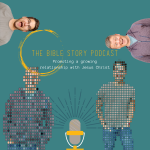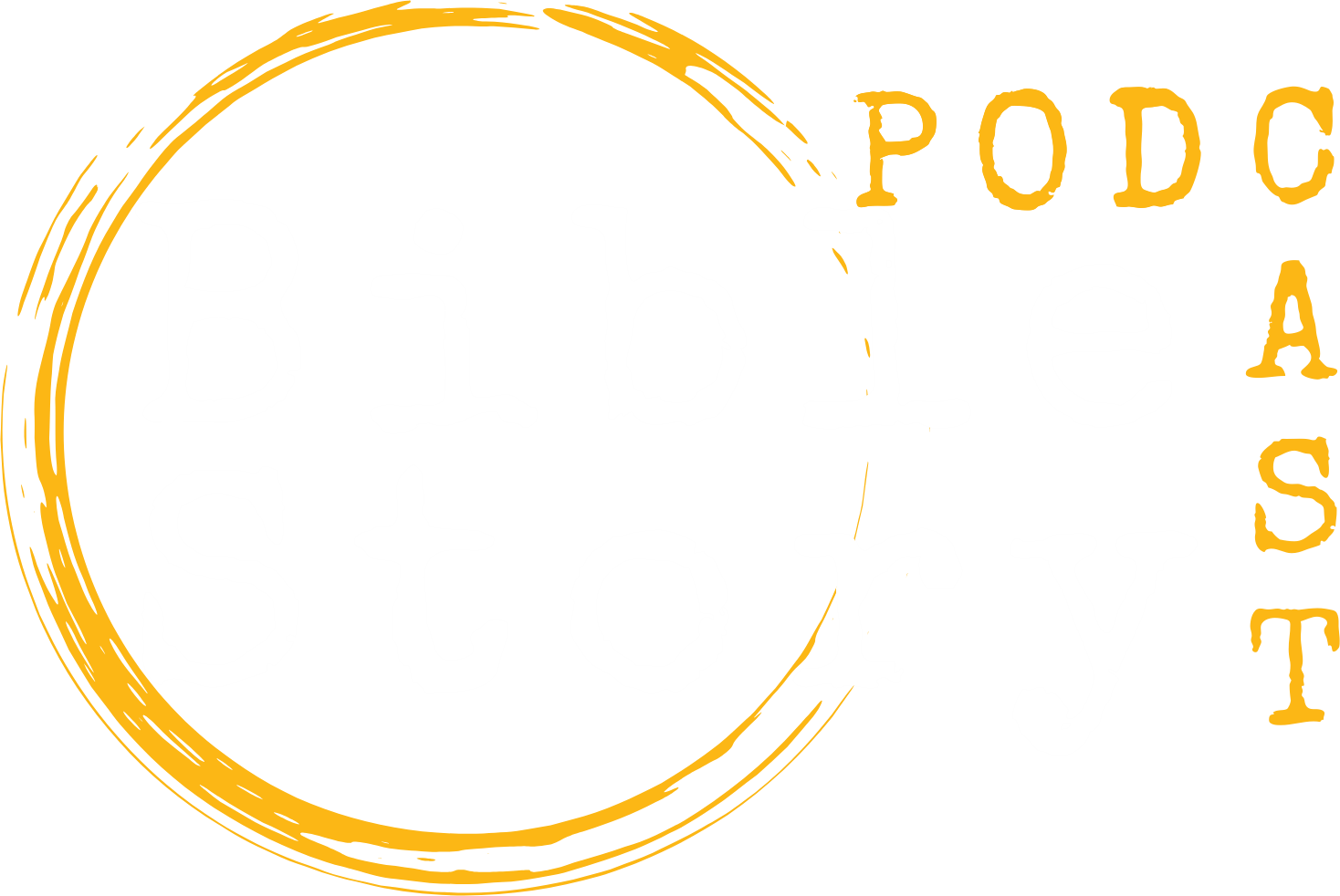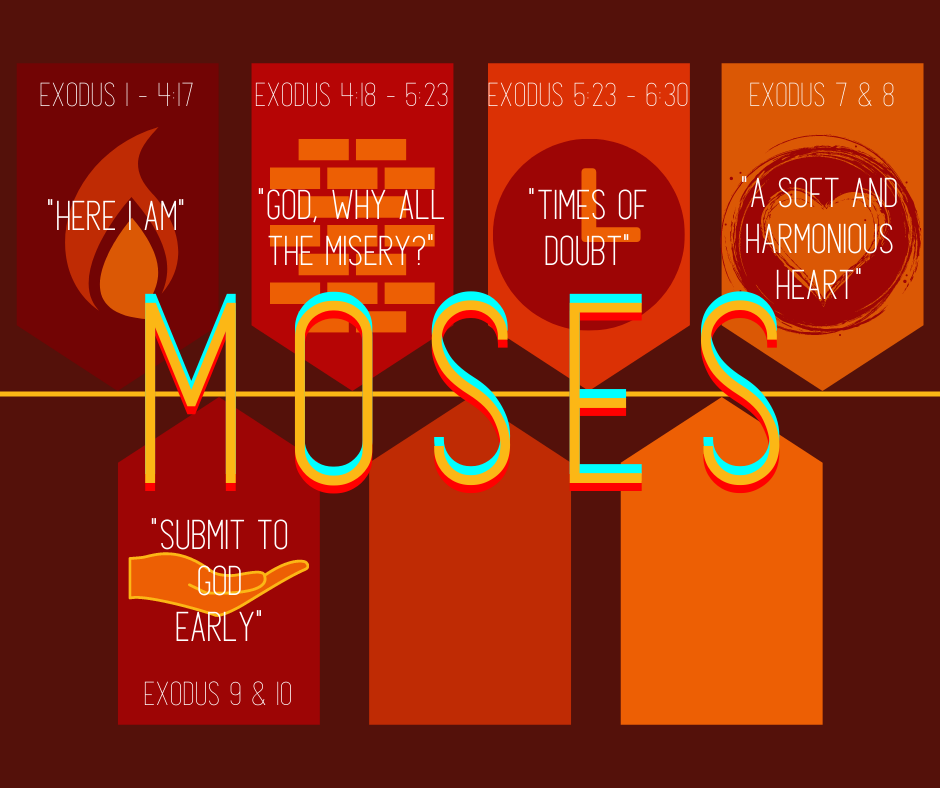
Submit to God Early
Have you ever regretted not doing something sooner? Perhaps, as a result, there was some unnecessary hardship. Each of us is part of God’s story. The sooner we submit to God, the better. Submit to God early on.
Discussion Episode
Scripture
About the Story
Bradon: We are continuing the story of Moses. If you have not started the series, I encourage you to go back to the first story titled, Here I am. Each week’s story builds off the last one, so if you are lost, then go back and listen to the stories leading up to this one.
As a reminder, last week, Moses and Aaron were going back and forth a lot with Pharaoh and asking him to let the Israelites go and worship God in the wilderness.
Jon: Every time Pharaoh’s heart would harden, and he would refuse the request of Moses and Aaron.
Bradon: We learned having a heart that is soft and in line with God’s is vital. Pharaoh was the opposite of this, and it was going poorly for him and his people! Let’s not wait any longer, and jump right into today’s story!
Submit to God early. God gave Pharaoh many chances amid the hardship of the plagues to respond well to God. Unfortunately, he never did, and his kingdom was utterly devastated because he never submitted to God.
Bbradon
Application
Jon: Bradon, last week, I outlined how God was challenging the various gods of the Egyptians. He continues to do that. Here are a few more of the gods that the true God would challenge through the plagues described in today’s story.
Apis and Mnevis were bull gods; the goddess Hathor had the form of a cow, and Khnum had the head of a ram. Isis was the Egyptian goddess of medicine and peace. Nut, was the goddess of the sky. Seth was the God of storms and disorder. Rah was the sun god.
Bradon: So the plagues we looked at today were the death of Egypt’s livestock, boils, hail, locusts, and darkness. I have to admit that it is pretty fascinating to see that all of these Egyptian gods were challenged and unable to save the Egyptians. It’s kind of like a story inside a story.
Jon: It is pretty interesting, but we will leave it as a side note and keep with the main storyline outlined in scripture. There is a lot that we can learn from this story. We would love to hear from you about something that stood out. It’s a lot of fun for us to listen to your reflections or respond to your questions—Bradon, what is something that stood out to you?
Bradon: The obvious thing is the devastation of all the plagues. It’s brutal, and at first, it doesn’t seem all that compassionate. God devastated that whole land. I wish so badly that the Egyptians and, more specifically, Pharaoh would have just turned to God and obeyed him. I wish Pharaoh would have a conversation with God like Moses did. Why all this misery, God? Why are you treating us so poorly?
But Pharaoh doesn’t do that; he keeps getting more and more stubborn.
Jon: Of course, God predicted at the beginning of the story when God called Moses from the burning bush that Pharaoh would continue to have a hard heart. But it didn’t need to be this way. Imagine if Pharaoh humbled himself before God and was obedient like Moses was.
Bradon: It’s hard to imagine how different this story would be, or maybe there would be no story!
Jon: Ok, Bradon, what is something we can learn from all of this?
Bradon: Submit to God early. God gave Pharaoh many chances amid the hardship of the plagues to respond well to God. Unfortunately, he never did, and his kingdom was utterly devastated because he never submitted to God.
Jon: Well said. The truth is there is only one God. We ought to align ourselves with God, meaning submitting to him as the only true God. The sooner we do this, the better. Now, I am not saying life won’t be challenging, but God is a good God and desires to love us and bless us. He can only do that when we align ourselves with him. So submit to God early.

